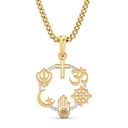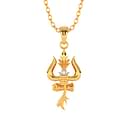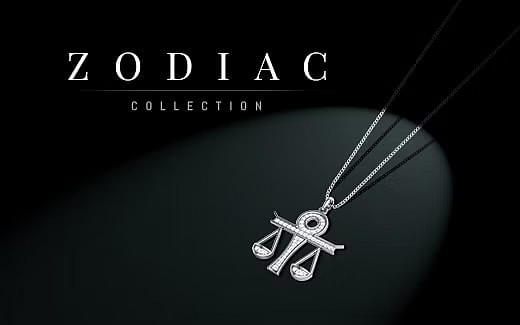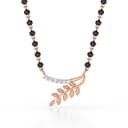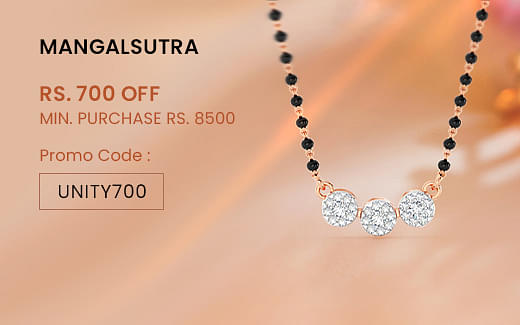Free Insured Shipping Nationwide | 1500+ latest designs
Available on Amazon India
Diamond Education
Gemstone Education
Metal Education
Jewellry Guide
Pearl Education
More Guide
Policies
What are conflict diamonds and what's wrong about them?
Conflict diamonds (some refer to them as blood diamonds) are real diamonds that are sourced from regions that are controlled by groups that are wrongly defiant to legitimacy and governments. Precious stones mined in these districts are sold to fund armed activity against those legislatures. More often than not, stone miners working in such zones of conflicts are subjected to serious human rights infringement and manhandle. After these diamonds are carried into the market, their source point is very hard to track, which has made the destruction of contention precious stones a noteworthy worldwide issue. At Perrian we take this issue very seriously and always ensure that all of our jewelry products are made from ethically sourced diamonds.
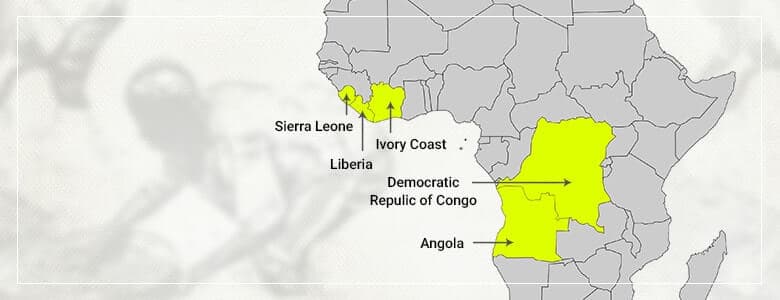
Foundation
A merciless civil war in Sierra Leone that has been prevalent since past 10 years denoted the beginning of a unified worldwide awareness with respect to conflict free in the mid 1990s. The Revolutionary United Front (RUF) seized innumerable mines of diamonds, controlled the production of diamonds, and utilized the money from illegal sale of these diamonds to fund terrorism which resulted in huge human rights violations. The problems faced by Sierra Leone regarding conflict free diamonds started a worldwide outrage and amidst all that the illicit production and sale of precious stones had been used to fund equipped clash in Angola, Liberia, The Ivory Coast, The Republic of Congo and The Democratic Republic of Congo. By the mid 1990s it ended up plainly obvious to the universal group that the time had come to try to wipe out every ill-conceived practice in precious stone exchange.
The Kimberley Process Certification system
In 2000, the United Nations met with not for profit human rights associations, governments, and the international diamond industry to figure a worldwide following framework which would restrain the conflict diamonds from entering the diamond market dealing with legally sourced diamond. They built up the Kimberley Process Certification Scheme, an agreement which requires every partaking government to track and to keep reports of every rough diamond from the mine to the point of its export. The understanding was completely approved in 2003 and today the process has been embraced by 74 governments around the world. The Kimberley Process, which incorporates a unique 'Arrangement of Warranties', guarantees that each partaking government abides the practice as follows:
18 Karat Gold
It contains 75% gold and 25% alloy. It is considered as the perfect balance of gold purity and strength.
> Global shipments of rough diamonds must be transported in an alter-safe compartment and joined by a verified government Kimberley Process Certificate.
> All the certificates should be given a unique number and should contain details of all the items that are in the shipment.
> Every government that has signed up for the Kimberly process should have a record of every diamond that is imported or exported along with the exact price value of the diamonds. The records will be reviewed periodically.
> Every government that has taken part in the process should export diamonds only to the countries that have signed up for the Kimberly process.
> The governments that have taken part should refrain from exporting shipments that are not certified
> In order to make sure that all the governments are complying to the export import policies each of them will be subject to periodic reviews of each and every stage of manufacturing and shipping process.
> Auditing of all the rough diamonds that are sold will be done (individually)
> The Kimberly process will take actions against the registered governments that are not complying.
System of guaranties
The System of Warranties guarantees checked and recorded jewel exchange after confirmed worldwide shipment. After a diamond is legally imported in, it might fall into different hands in different circumstances. Commonly it moves from dealer to shaper, polisher, setter of the diamonds in jewelry and lastly retailer before it reaches to a purchaser. Each time the diamond reaches to a new person, a receipt stating that the diamond is genuinely conflict free must be issued. All retailers, producers and dealers are required to keep point by point records of receipts for at least five years. Despite the fact that the guarantee isn't required to show up on shopper receipts, clients ought to dependably check the approaches of their diamond retailers to ensure that the diamonds or the jewelry that they buy are conflict free.
Current situation of Africa related to the diamond industry
The Kimberley Process without a doubt has been having a positive effect. The World Diamond Council has proclaimed that, today, over 99% of the diamonds that are in the market are originated from conflict free sources. Sierra Leone, Liberia, The Republic of Congo, The Democratic Republic of Congo and Angola are presently at relative peace. Some of these nations are as yet working towards revamping their country and their economy, and all have joined the Kimberley Process Certification Scheme.
Because of the notorious civil clashes in these nations, Africa has been underlined as a non reliable source of rough diamonds and a hub of vicious, violent and corrupt diamond exchanges. In any case, this is a general misguided judgment. Just a single diamond mining nation, the Ivory Coast, is at present banished from mining and exchanging of diamonds. The Ivory Coast has been under an UN Security Council Resolution which prohibits the extraction and bourse of diamonds since November 2007.
Also, various African nations, for example, Botswana, Namibia and South Africa, have created legal centers where they could mine and manufacture diamonds, which have helped them improve both socially and monetarily from diamond incomes. In many cases, the precious stone businesses' in these nations generates more employment opportunities, a steady economy for the country and an unfaltering and proper income source to the citizens of the country. Initiatives like public-health care, education projects, community service programs etc. have taken place due to the local partnerships with diamond mining companies.






















